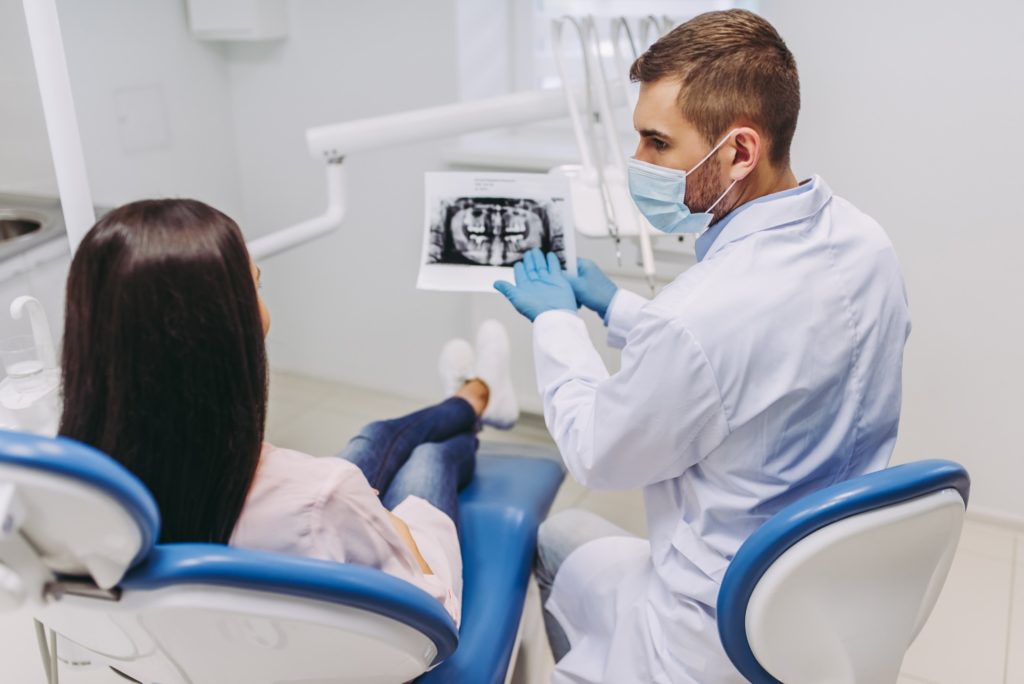
When you take a sip of your morning coffee or bite into a scoop of ice cream in the evening and feel the first signs of a toothache, you may immediately cross all of your fingers and toes in hopes that it will go away on its own. But what if the pain subsides a few weeks or months later? Did the tooth actually heal itself? Unfortunately, no. Keep reading to learn why a once painful toothache can suddenly subside and why visiting your emergency dentist is a top priority.
What Does It Mean If a Once Painful Toothache Has Subsided?
To answer this question, it’s important to discuss how tooth decay works. If undetected, it can erode away your enamel, working its way into the inner layers of the tooth. At this point, you may begin to experience unpleasant symptoms, like tooth sensitivity and discomfort when chewing. If you neglect to visit your dentist during this phase, the infection can continue to worsen and eventually kill the nerve of the tooth. As a result, your toothache will subside.
Why Visiting Your Emergency Dentist Is Crucial
Although the pain may have faded away, the damage has been done. That’s why visiting your emergency dentist ASAP is of the utmost importance. During your appointment, they can conduct a dental exam, assess the structure of your tooth, and determine the next best steps. If the tooth can be saved, root canal therapy may be the best option. If the damage is too extensive, however, then the tooth will most likely need to be extracted. Remember, the sooner you call your dentist, the sooner your pain-free smile will be restored.
At-Home Remedies to Use Until Your Appointment
Oftentimes, emergency dentists will go above and beyond to schedule an appointment with you for the very same day if you’re struggling with a dental injury. However, if you have a few hours or days to wait until your visit, there are a few methods you can use to alleviate your discomfort.
- Avoid acidic, sugary, chewy, and hard foods.
- Use a cold compress for 10 minutes at a time.
- Rinse with a mixture of salt and warm water.
- Take an OTC pain reliever as needed.
Remember, toothaches are your body’s way of communicating something is wrong – don’t ignore it! The moment you begin to experience any smile-related discomfort, get in touch with your dentist.
About the Author
For nearly three decades now, Dr. Tommy Murph has used his experience, education, and talent to help nearby patients maintain and restore their beautiful smiles. He earned his dental doctorate from the Medical University of South Carolina and has since undergone more than 600 hours of advanced training. If your toothache has suddenly subsided, you’re overdue for your six-month checkup, or you’d simply like to schedule an appointment, visit his website or call 843-488-4357.
